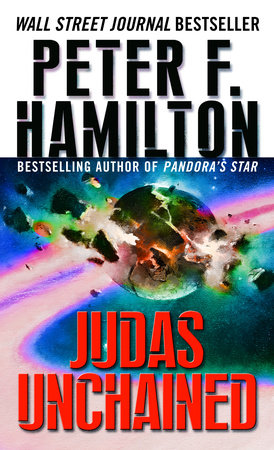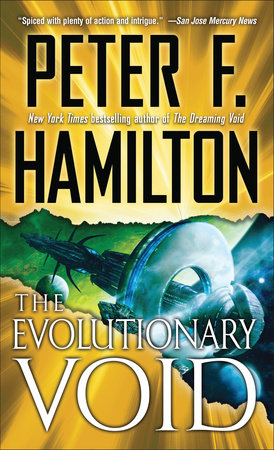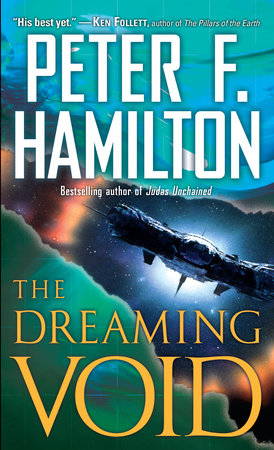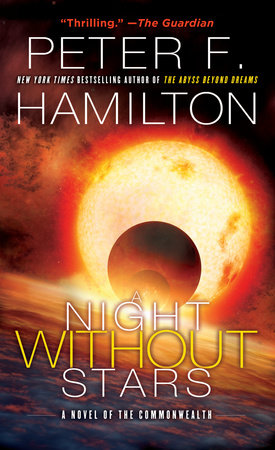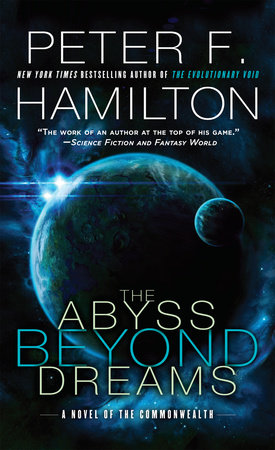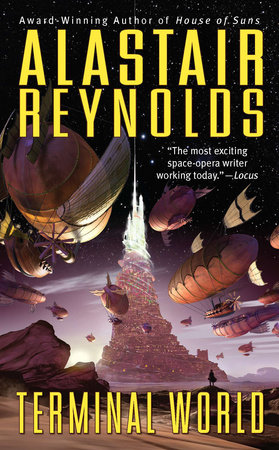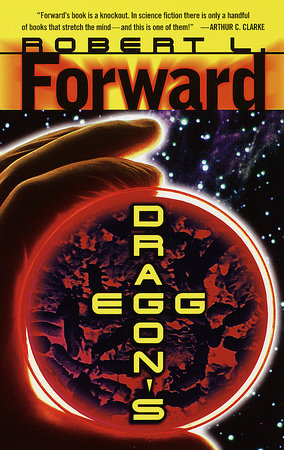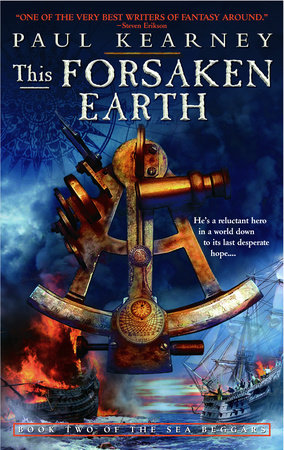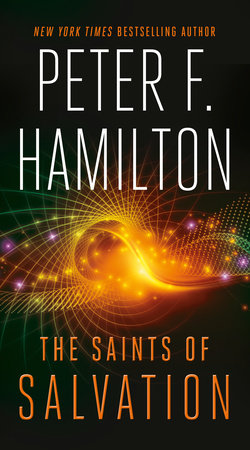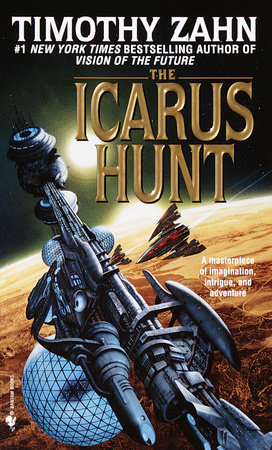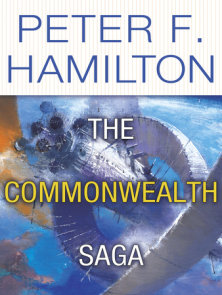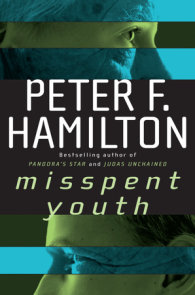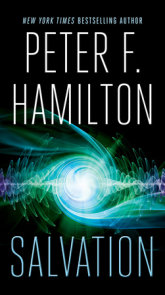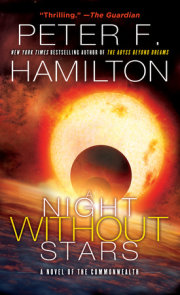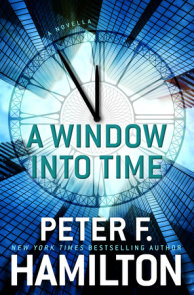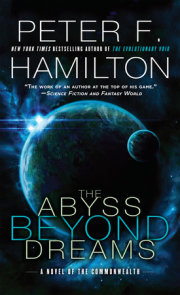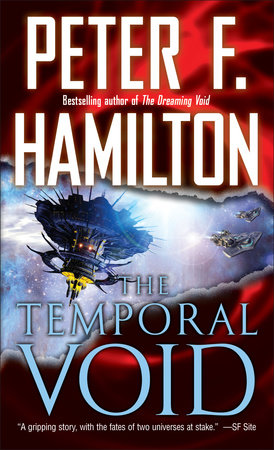Author Q&A
Interview with Peter Hamilton, author of JUDAS UNCHAINED
Q: How necessary is it for a science fiction writer to keep up with the latest theories and developments in physics and other sciences, and how do you approach this in your own work?
Peter Hamilton: It’s very necessary. However, there are levels involved in just how much research I do on any given branch of science or engineering. A story requires a basic understanding of the technology involved in order to describe it convincingly. I’ll find out what I can to avoid any fundamental mistakes or inaccuracies, but beyond that I simply avoid going into any detail. Given the rate of technological progress, details can become out of date very rapidly.
Q: Here in the United States, we are seeing a strong attempt by conservative political forces, often acting at the behest of religious fundamentalists, to censor scientific inquiry and the reporting of data determined to be at odds with political or religious dogma. Is this a purely American phenomenon, or have you noticed it in England as well? How much of a threat is this, really, and what do you think can be done about it?
PH: It’s not so noticeable in England. Of course, given that the majority of scientific funding comes from government, it is depressingly inevitable that a political agenda will creep in. Given an environment of free speech, then pressure can always be brought upon institutes and universities to maintain an honest, balanced outlook.
Q: I’m intrigued by the title of your new novel, Judas Unchained. The previous novel in the series, Pandora’s Star, alluded clearly to the eponymous Greek myth, but the new title mixes at least two allusions, which seem at first glance to be somewhat contradictory. First and most obviously, there is the reference to Judas set free, presumably from Hell, but there is also an echo of Prometheus Unbound, the title of plays by, respectively, Aeschylus and Shelley. It seems jarring to conflate Judas, regarded as a betrayer, with Prometheus, viewed as the benefactor of humanity. Can you shed some light on this, and on the novel itself?
PH: I think you’re reading slightly too much into this! I’d never considered a connection between Unchained and Unbound. A working title was Judas Unleashed. It basically alludes to a traitor being let loose to do his worst, which is what book two of the series concerns itself with.
Q: The number of characters and sub-plots stretching across both books is dizzying and dazzling. How do you keep them all straight while you’re writing?
PH: Simple answer: with difficulty! I do take several months to write notes on various worlds and characters, and work out plot lines before I even start writing. Once that’s been done, and I have the major events sorted out, I’ll start combining them into chapter outlines. Even these aren’t fixed in stone; all it means is that I know where characters start a chapter and where they have to be when it finishes. What happens between is a combination of any ideas I come up with as I’m writing and the broad guidelines set out by the notes.
Q: Will there be more novels set in the universe of the Intersolar Commonwealth? You’ve left a lot of tantalizing questions–the nature of the enigmatic Silfen, to give just one example–unanswered.
PH: There is another series set in the Commonwealth, called the Void Trilogy, which I’m currently writing and is set 1000+ years after the events in Judas Unchained. As to what will be examined, the Silfen don’t play such a large role, but you do get to find out a lot more about the Raiel and the High Angel.
Q: What did you draw upon in imagining the alien MorningLightMountain, in terms of making it both believable and, well, alien?
PH: I went right back to its roots. I knew what I wanted, a creature that regarded all other life as unacceptable competition for resources, and mapped out the kind of evolution which would bring that about.
Q: One constant in your work is the careful examination not only of advanced technologies in their military use and wider social effects, but the moral dimension of these uses. You seem to be commenting upon the present day as much as upon a fictional future.
PH: Absolutely. This is one of the fundamentals of science fiction. Given the rate of scientific development and the way we can see today how fast new technologies have an impact, then working out possible ways a technology will change us, and our outlook, is essential if you’re going to write a believable future. This is never more obvious than in the field of medical science. We already live longer because of advances in this field, and its ultimate goal must surely be to extend life indefinitely. I can’t think of any other single event which will alter us to a greater degree than this. The ways it will do so are open to a lot of interpretation, which of course is where the fun begins for me as a writer.
Q: Are you optimistic or pessimistic about the future for human beings on this planet, and why?
PH: Pessimistic for the short term, simply because of the sheer number of conflicts and clashes going on right now. But optimistic in the long term because there are so many options available, and still more opening up to us as a species as our knowledge base expands.
Q: You don’t write space opera exclusively, but you do seem to have a special affinity for the form. Why?
PH:I loved E.E. “Doc” Smith when I was growing up, which is why I decided to give it a go to start with. Then once I started writing in that particular field I realized just how big a scope it provides for the writer. Virtually nothing is off limits. Who could ask for more?
Q: Do you keep up to date with the latest science fiction, or do you prefer to read outside the genre?
PH: I like to read many books. What I have time to read is a different question. It’s still about 70% science fiction. I’ve done most of the classics and am now reading stuff like Richard Morgan, Justina Robson, Dan Simmons. There’s also a depressingly large to-be-read pile on my desk of books I’m sure I’ll read if I could just find that elusive extra hour in the day. Having recently become a father, and another is on the way, I expect I’ll get round to them when I’m in retirement.
